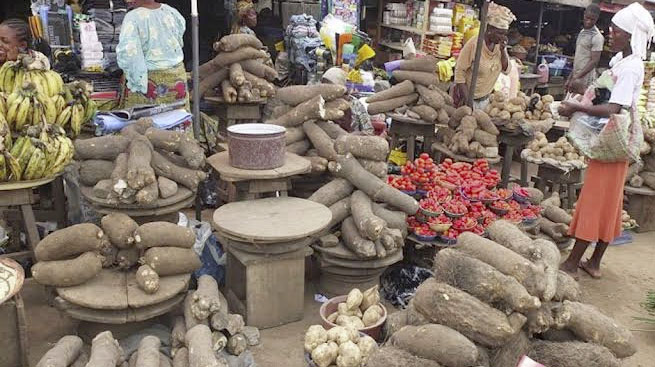
For the umpteenth time, stakeholders in agricultural sector have made passionate appeal to the Federal Government and other key players to support actions, especially in the rural areas, to halt the deepening hunger crisis.
This call is coming on the heels of revelation by the United Nations World Food Programme (WFP), which projected that 33 million Nigerians would be food insecure in 2025, a sharp increase from the 25 million currently in need of assistance.
The WFP spokesperson for Nigeria, Chi Lael, attributed this to the record inflation, climate shocks and ongoing conflicts.
The Chief Executive Officer, Produce Export Development Alliance (formerly AFGEAN), Adetiloye Aiyeola, who described the projection as a dire call to action, said the food crisis is not simply a result of inadequate food production, but a failure to translate harvested crops into meals on the table.
“Flooding, insecurity and inflation exacerbate these challenges, but the crux lies in our neglected post-harvest systems.
“Nigeria needs targeted investments in storage facilities, efficient logistics, agro-processing hubs and a robust distribution network to ensure that food produced is not wasted.
“Additionally, young people must be incentivised to participate in these critical segments of the food value chain. From innovative cold-chain solutions to high-impact agro-tech startups, opportunities abound,” he said.
Aiyeola stressed the need for policies that safeguard small and medium-scale agribusinesses from economic shocks, noting that protecting the players will build resilience into the country’s food systems, and ensuring sustainable solutions to hunger.
The Founder of Izanu Africa, Comfort Onyaga, said the current crisis in food sector is a systemic problem, and if not tackled holistically from that angle, it will continue to deepen.
She said: “The issue we are facing in the country is not an issue of production; it’s rather an issue of negligence of other segments of the agricultural sector. And it’s about time the country prioritise food production for the local people for local consumption, as against export, it’s about time. We can’t continue to export food and expect that we’ll not go hungry.
“There is no one size fit all solution to this problem, considering we are lagging on our zero hunger and the pillars of food security – availability, access, utilisation, and stability. Addressing severe hunger and food insecurity requires proactive steps with strict policy in place to checkmate the volume of food exported.
“It is time for concerted efforts between the federal, state, and local councils, including the private sector and NGOs to prioritise investment in the production of diverse nutrient dense, healthy crops and vegetables by Nigerians for Nigerians.
“The recent $134 million loan from the African Development Bank should not be invested into production only. There is too much emphasis on production while we are struggling with post-harvest losses in the face of hunger – neglecting the post-harvest segment and value addition will be detrimental, and the vicious circle will continue if the government does not diversify food production to ensure our indigenous food produced en masse beyond maize, wheat, and beans. “
On the other hand, it is time for households to grow their food to complement the efforts of the government, while also reducing the financial burden of feeding themselves. The African Development Bank should provide technical support and monitor the utilisation of the funds.”
Onyaga stressed the need for the country to be strategic in approaching the crisis, noting that the Federal Government needs to look critically at different states in the country to see their areas of comparative advantage and competitive advantage.
“Each state government should align their plans. They should also have their strategic plan at the state level and at the local council level to ensure that we prioritise production of food across different parts of the country. If there’s going to be movement of food, it should be movement across just political regions and zones.
“By implication, it would mean that the people who are producing cocoa in the South South and Southwest, there should be huge investment in that area. If people are producing more tomatoes in Benue State, there should be investment in that area across different segments of the value chain. There should also be investment in value addition.
“If people in Edo State, for instance, are focused more on producing plantain, we should have more plantain produce, with enough infrastructures in place to add value to those foods. We should not focus on beans, rice, wheat or maybe soybean only, these are not the only food for Nigerians,” she said.
Onyaga warned the Federal Government to put a stop the exportation of staple foods and focus more on feeding the people, noting that this is the only way the country can address the food security crisis.
“The Federal Government should come up with a policy insisting that at least 70 per cent of the food produced in the country should cut across different food staples, such as tomatoes, yam, cassava, and, and all other household foods, even poultry and livestock, to ensure that Nigerians have food to eat.
“And beyond that, the government should look into investment in value addition, because we live in a country where there’s food insecurity, there’s so much production happening in the country, yet there’s also a huge volume of food waste. It’s time for Nigeria to begin to pay attention to the issue of post-harvest loss management, investing in infrastructure to achieve value addition.”






